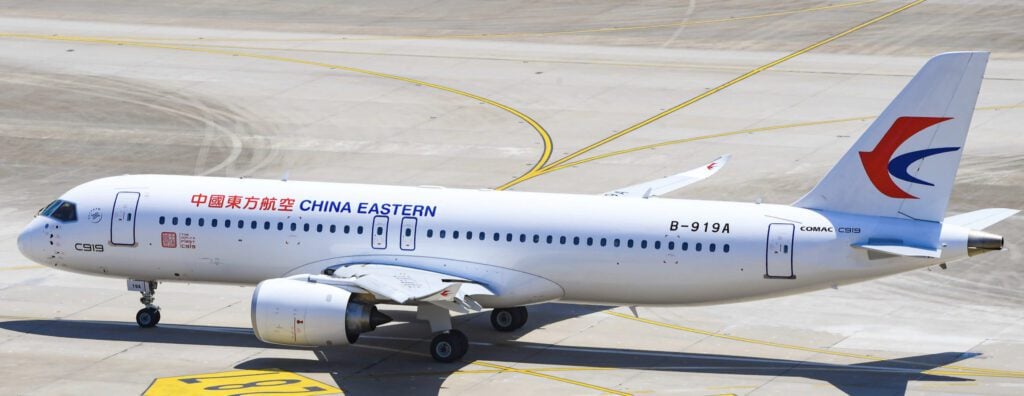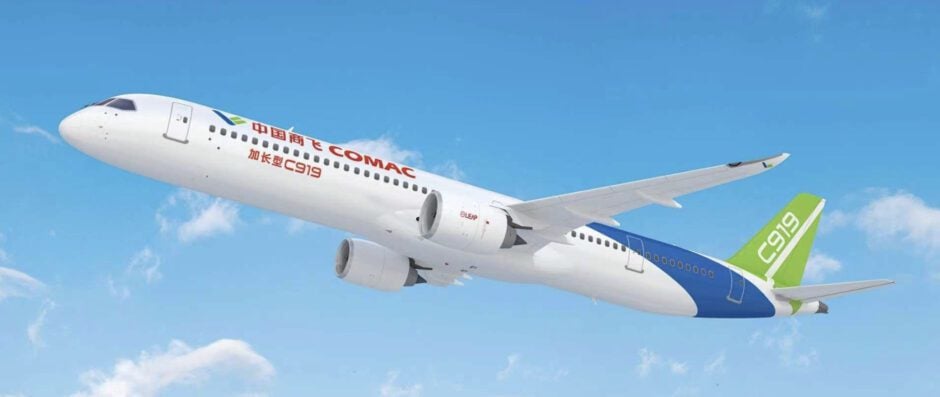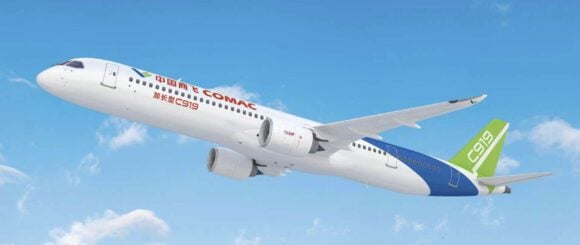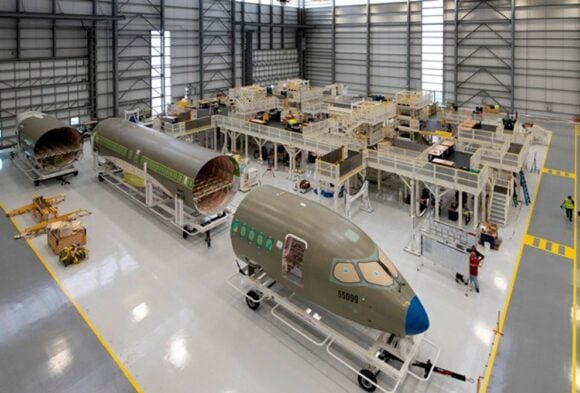
China’s COMAC has apparently slashed its 2025 production target from 75 to 25 C919 aircraft, according to confidential sources to Bloomberg. China Eastern, Air China, and China Southern, in their financial reporting, that they expected 32 deliveries in 2025 but as if September only 5 have been delivered to customers, which corroborates the production shortfall.

From Optimism to Pessimism
Earlier this year, COMAC raised its delivery forecast from 50 to 75, but has reversed course as continuing supply chain constraints plague the company. Powered by the CFM LEAP-1C engines from GE Aerospace, geopolitics also enter the picture, as the US temporarily blocked engine deliveries in July, which have since been resumed.
The C919 is the Chinese competitor to the Boeing 737MAX and Airbus A320neo, but as a later entrant into the market, has a much smaller order backlog than its duopoly competitors. The C919 relies on western suppliers, which the company is looking to change as Chinese substitutes can be developed. As a smaller customer than Airbus or Boeing, COMAC has a lower priority for industry suppliers, as they sell fewer components to COMAC. With engines, flight control systems and other critical components supplied from the US, they are subject to potential tariffs and geo-political interruptions.
There is good news at COMAC
COMAC is making progress with the ramp-up of its C909 regional jet, which has now seen its first deliveries and operations outside of China in Southeast Asia. The aircraft is now operating in Laos, has international flights by Chinese carriers into Viet Nam, and is expected to win orders in Indonesia in the near future. While production rates remain slow by western standards, the C909 deliveries are on an upward trend. Unfortunately, the C919’s supply chain is constraining that aircraft’s ramp-up, which will result in revised fleet planning for China’s big 3 airlines.
A rapid ramp-up appears stalled
Navigating an international supply chain and solving problems for thousands of parts across hundreds of companies is not easy. Add in geo-political elements, and production is likely to continue to be constrained into 2026 and possibly 2027 before COMAC can fully remedy the situation. The current US administration, recognizing Boeing’s leadership position in the US balance of trade, is unlikely to embrace policies that aid COMAC’s growing position as a potential competitor to Boeing and Airbus.
The Bottom Line
Aerospace is an international industry, with global supply chains and strong economic impacts for aircraft manufacturing countries. Geo-politics have always played a significant role in the commercial aircraft sector, greatly benefiting Boeing and the United States balance of trade for many years. We don’t expect that to change, but with a mercurial President, COMAC cannot be assured that its supply chain will remain intact. A move towards Chinese components and subsystems is inevitable, at which point the C919 should see a significant production ramp-up. But that will take a few year in which delivery shocks, like we’ve seen this year, may recur.
Views: 857




